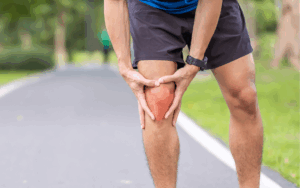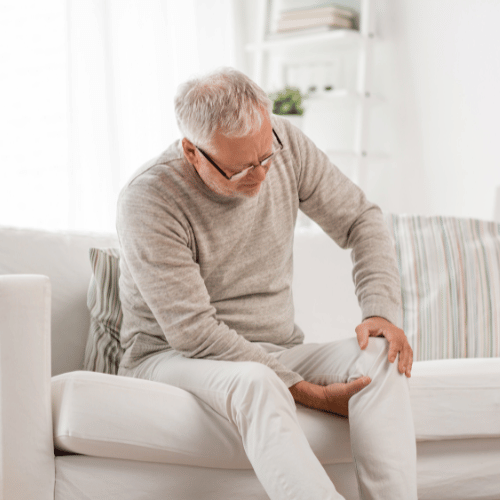
From Marathon Runner to Chronic Knee Pain
This is Tony’s story. He came to us with ongoing knee pain that worsened at work.
Conditions > Aches & Pains
Aches and pains can be more than just a minor inconvenience; they can cause mild discomfort to intense pain and affect various parts of your body, including your muscles, joints, and back.
Aches and pains can also be chronic (ongoing for a long period) or acute (arising suddenly). Our goal is to help you identify the cause of your aches and provide effective treatments to alleviate them.




Chronic aches are characterised by pain lasting more than three months and are often caused by conditions like arthritis or fibromyalgia. This type of pain may be persistent or fluctuate in intensity.
In contrast, acute aches involve sudden onset pain that typically lasts for a short period, often resulting from an injury or strain. Acute pain usually resolves as the injury heals.
Managing these types of pain requires different approaches: chronic pain often involves long-term lifestyle changes and ongoing management strategies, while acute pain can be addressed with short-term relief methods and treatments focused on healing the injury.


Preventing aches often involves maintaining good habits and taking proactive steps. Regular exercise is crucial for keeping muscles and joints flexible and strong; incorporating activities like walking, swimming, or cycling into your routine can be beneficial.
Practicing good posture by maintaining proper alignment while sitting, standing, or sleeping helps reduce strain on your muscles and joints.
Additionally, ergonomic adjustments in your workspace can support good posture and minimise repetitive strain injuries.
Lastly, incorporating regular stretching into your daily routine can help keep muscles flexible and reduce the risk of strain.
Severe pain always needs to be treated by a healthcare professional.
However, for minor aches, patients can manage pain at home using several practical self-care tips and techniques. Stretching and strengthening exercises can be particularly effective; simple exercises designed to improve flexibility and muscle strength can help alleviate discomfort.
Additionally, home remedies such as heat packs, cold packs, and Epsom salts can provide temporary relief and aid in reducing pain.


If your aches are persistent, severe, or affecting your daily activities, it is important to seek medical advice.
Our experienced team is here to provide expert care and support to help you get back to feeling your best.
Aches can arise from a variety of causes, including:


Additional causes of aches and pains include:
If you are experiencing ongoing pain, it is important to see one of our doctors for a thorough consultation and examination in order to determine the cause and find a suitable treatment. The examination will help the doctor either tell you what is going on or recommend the specific testing and imaging required to find the right diagnosis and specialist referral or treatment plan.
We work with experienced consultants & healthcare professionals who have received positive feedback from our patients, and with whom we have established long-term relationships.
Use our online booking engine or book your test by giving us a call.
On the online booking engine select the “appointment type” you need.
You will be seen by one of our friendly doctors or trained clinicians.
Latest Episode
Tune in to our podcast to explore the world of healthcare and learn from distinguished special guests. We cover everything from preventative measures to cutting-edge treatments so that you can stay informed and up-to-date on health-related things.

This is Tony’s story. He came to us with ongoing knee pain that worsened at work.

A lot is said about medical weight loss but we are here to debunk the myths for you.

This is Kate’s story. She visited us last year and saw great improvements in her health and quality of life.
Subscribe for latest updates & news


From same-day private GP and blood test appointments to visa medicals, a sexual and reproductive health clinic, and preventative health screenings, we are here to help.
Contact Us
Accepted Insurance Companies






Please note that Walk-in Clinic is a private medical centre & not an NHS service. Harley Walk-in Clinic Ltd company registration no. 07472804